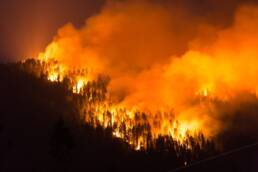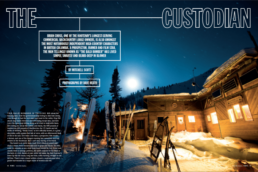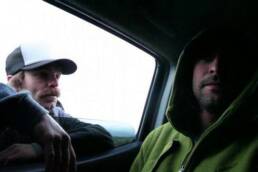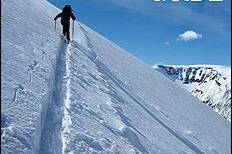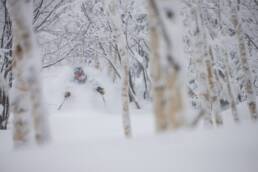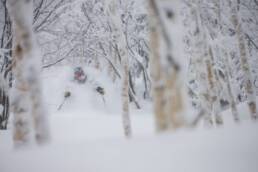Coast Mountain Culture senior writer Jeff Davies is in the process of researching an article for a future issue about forest fires and their future impact on the pacific northwest. His interview with fire ecologist Robert Gray was so poignant, we decided to print most of the transcript here.
One of BC’s leading experts on forest fires says those of us who live in the forest, or who love to hike, climb and ride in the backcountry, may just have to become accustomed to the appearance of a burned landscape.
“Some of those really cherished spaces may look different in the future,” says Robert Gray of Chilliwack a fire ecologist who heads his own firm, R.W. Gray Consulting Ltd. He was one of the authors of the landmark report Firestorm 2003, a review commissioned by the BC government and headed by former Manitoba premier Gary Filmon.
The report recommended the BC government lead the way in preventing even more devastating fires in the future – through forest thinning and prescribed burns.
But this year, with large swaths of forest in central BC in flames, Gray says the problem is bigger than ever. He spoke recently with Coast Mountain Culture senior writer Jeff Davies of Victoria. Here are some excerpts. We are planning a profile of Robert Gray, his work and the science of forest fire prevention in a future edition.
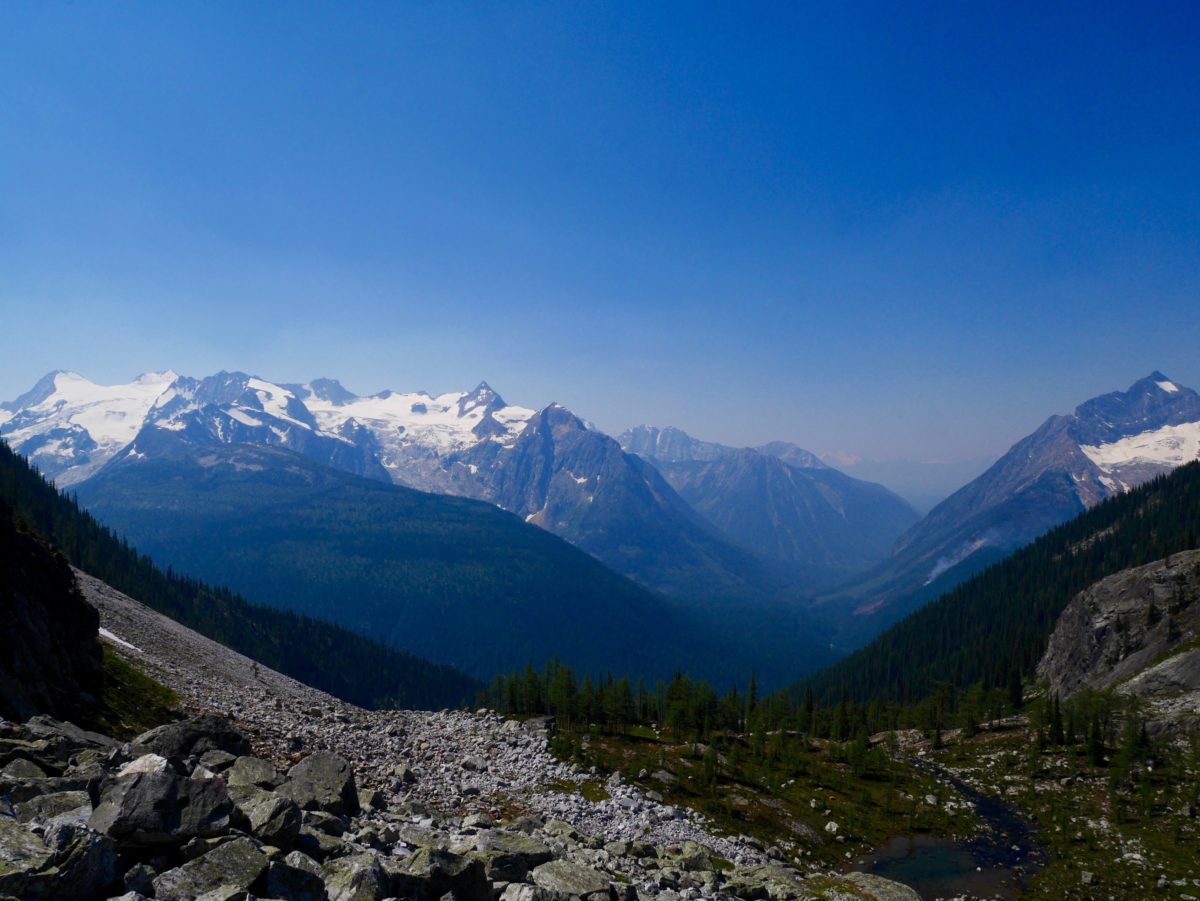
Jeff Davies: You have been warning British Columbians and the BC government at least since 2004 that we need to do more to prevent catastrophic forest fires. How big is the problem and what needs to be done?
Robert Gray: Oh, the problem is as big or bigger than it was then, because of course the conditions continue to deteriorate. We treat some areas and have to go back to do maintenance on them. The areas that we thought were low to moderate hazard are probably high hazard now because of course that was all before the mountain pine beetle epidemic. So when the province did that initial mapping exercise and identified 1.2 million hectares at high risk, that was before we had 20 million hectares of dead pine.
Fast forward to today: what are your thoughts when you hear the coverage of the latest forest fires, many of them interface fires which threaten homes?
We are very, very frustrated…Thirteen years later you can’t look at a single community in BC and say it’s fire safe. Everybody has applied for the money to do a community wildfire protection plan and some have applied for money to do fuel treatments, but it’s 30 hectares here, maybe 50 hectares there, but no one community, you could stand back and say, well, that community is in really good shape because it has that large treated area around it and they’re maintaining it. There are just holes in it everywhere. You know, it’s a Band-Aid solution.
Another big problem we have is that the city can go and treat its land and maybe the crown will be active in treating their land, but we still haven’t solved what to do about private land. None of the money can be used to treat private land. You can’t even inspect the hazard on private land…. You can do everything you can on your property but everything you’ve done can be completely overwhelmed by the inactivity on your neighbour’s property. So do we rely on local governments to pass really stringent bylaws and come down hard on people? Politically that’s a non-starter. That’s where you need a top-down solution that encourages and incentivizes people to become more proactive and do it. I think that’s the better option.
“British Columbians need to start thinking that any summer we could have a fire, from how they behave as far as potentially starting a fire, to where they live, and putting all those key valuables in one location…”
Just the mention of a top-down option is going to engender some political opposition. Just what is the hurdle or obstacle there?
I think the departing Liberals had almost a Libertarian approach to things, where entrepreneurs will solve the problem and government is oftentimes the enemy and is not very effective. We’ll see what becomes of an NDP\Green coalition here, if they have a different attitude. You know, government isn’t always the problem. Lack of government leadership has been the problem with this whole issue.
How much of a change in mindset are we going to need among British Columbians before we can even approach this problem?
That’s a good question. British Columbians need to start thinking that any summer we could have a fire, from how they behave as far as potentially starting a fire, to where they live, and putting all those key valuables in one location, and videotaping the interior of a house for insurance purposes. But we’re kind of lax. They don’t think, “hey, it’s starting to get hot in the summer time; oh, there could be a forest fire.” We’re not there yet.
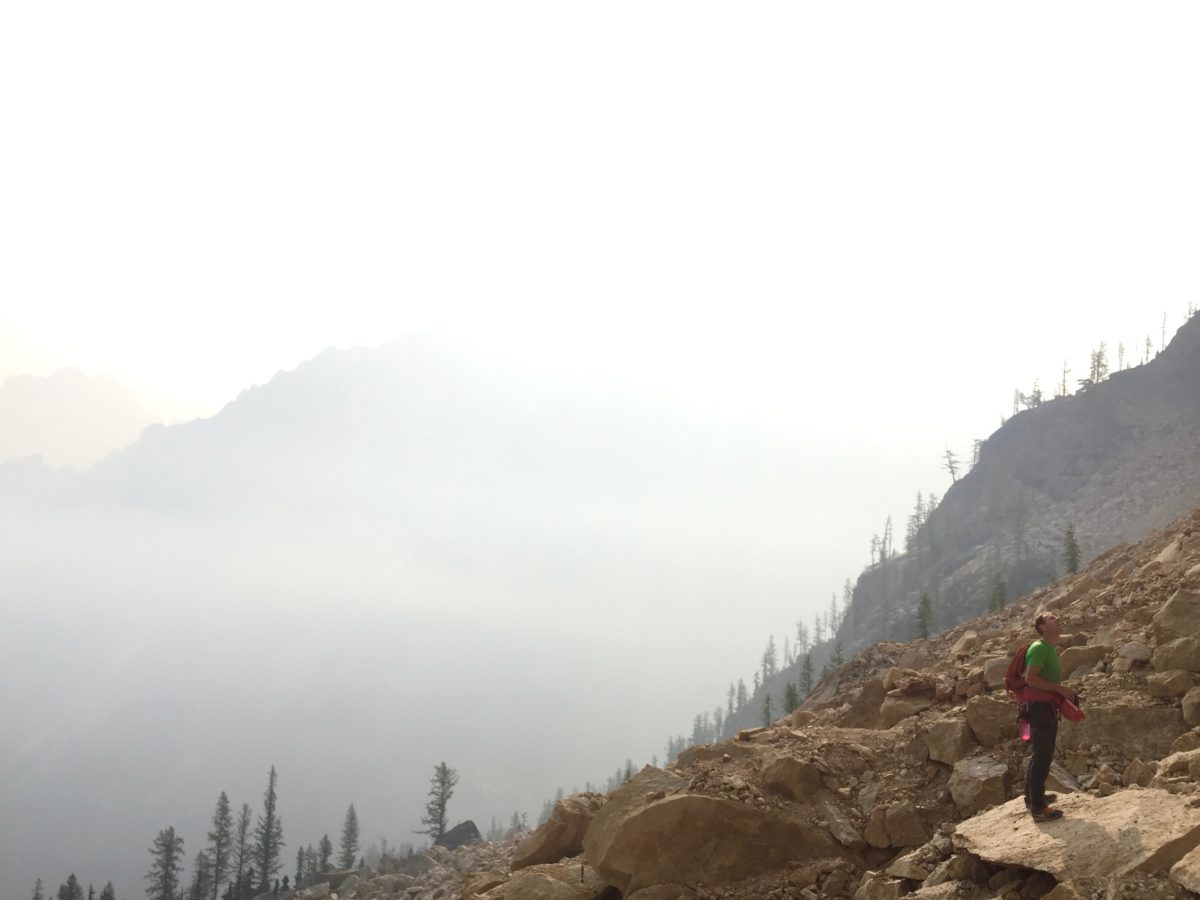
Our magazine serves the recreation community, people who live in the backcountry or live for it. What is this going to mean for people who celebrate the great outdoors, or who spend their time recreating in the backcountry?
Well, some of those really cherished favourite places may look different in the future; you know, if they’re OK with hiking through a burned landscape. I mean those of us in fire (ecology), we see the beauty in it differently from other people in the public, but we’re likely to see some of those big impacts in places we like to go and recreate and do things, and we may see more closures and obstacles to getting to those places. If this continues, I really wouldn’t be surprised if there’s a complete ban from people going into the woods (this summer).
So you may not be able to wander as freely and see as much old growth or even as much second or third growth as you did in the past?
Yeah, and the other thing too is to garner a greater acceptance of the change that is necessary to our landscapes, whether it’s mechanical thinning or prescribed burning.
Jeff Davies
Jeff Davies is a freelance writer and retired CBC political report based in Victoria, British Columbia. He left the legislative press gallery in 2012 to spend more time enjoying the great outdoors and writing about it.
Related Stories
The Future of Outdoor Filmmaking
Having seen some of this technology at work recently, most notably at the Red Bull Cold Rush at Retallack Lodge this…
Interview with Sherpas Cinema
It's one of the most eagerly anticipated ski films in recent memory, with a trailer that blew minds with its lure of…


